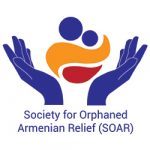THE GULBENKIAN FOUNDATION
The Calouste Gulbenkian Foundation was created in 1956 by the last will and testament of Calouste Sarkis Gulbenkian, a philanthropist of Armenian origin who lived in Lisbon between 1942 and the year of his death, 1955.
Established in perpetuity, the Foundation’s main purpose is to improve the quality of life through art, charity, science and education. The Foundation directs its activities from its headquarters in Lisbon and its delegations in Paris and London, with support provided by Portugal in Portuguese-speaking African Countries (PALOP) and East Timor, as well as in countries with Armenian Communities.
The Foundation has a museum, which houses the Founder’s private collection, alongside a collection of modern and contemporary art; an orchestra and a choir; an art library and archive; a scientific research institute; and a garden, in a central area of the city of Lisbon, where educational activities also take place.
In conjunction with cultural activities, the Foundation fulfils its mission through innovative programmes that develop pilot projects and support, by providing scholarships and grants for other institutions and social organisations.
For the period 2018-2022, the three priority areas are: – social cohesion and integration, sustainability and knowledge – which are reflected across the whole intervention strategy.
See funded projects below
2019
Three, two-day sessions of the “Female Empowerment Program” training organized by SOAR Armenia Foundation with financial support from the Calouste-Gulbenkian Foundation. Unhealthy relationships, gender roles and gender-based violence, as well as reproductive health were discussed, test works and games were organized for the training. During all 3 sessions Marina Melkumova, Doctor, Adolescent Health Program Coordinator at Arabkir JMC-Institute of Child and Adolescent Health, had speeches for the girls. The sessions were animated by SOAR members-volunteers Zhanna Gevorgyan and Armine Harutyunyan.
Sessions took place in Tsaghkadzor, Gyumri, and in Yerevan.

